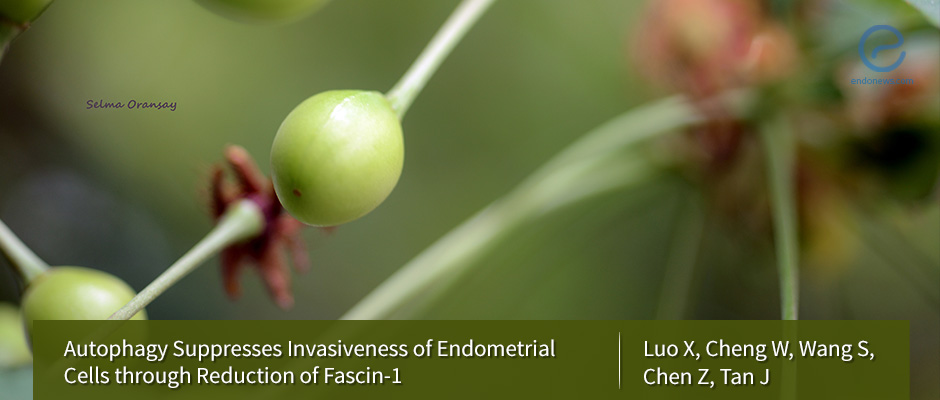Is there a new hope for the prevention of endometriotic invasions?
Aug 16, 2018
Autophagy activator Rapamycin to reduce endometriotic lesions
Key Points
Highlights:
- Autophagy, to destroy the organelles of the cell by its' own lysosomes when it is necessary, takes place in the cellular level. The role of autophagy in endometriosis has not yet been evaluated.
- The authors found out that the autophagy level of endometrial cells taken from patients with endometriosis is lower than the endometrial cells of the control group.
Importance:
- A new idea of treatment and prevention of endometriosis by inhibiting their cellular growth and invasion with autophagy activator agents should be considered in the future researches.
What's done here:
- The autophagy activator (Rapamycin), inhibitor (3-MA), and "RNA interference fragment targeting ATG5" were used to investigate the influence of autophagy on cellular growth, proliferation, and invasiveness.
- Several biochemical assays performed to indicate the role of autophagy in endometrial cell lines.
- The levels of autophagy markers in endometriosis tissues or control endometrial epithelial cells were compared.
Key Results:
- In-vitro studies on endometrial cell lines indicate their autophagic effect is mainly on cellular growth (proliferation).
- Autophagy activator Rapamycin-treated group of CRL-7566 endometrial cells suppressed the cellular growth as compared to the control group, and this result is statistically significant.
- This means inhibiting the invasiveness of endometriotic tissues, Rapamycin could be a new agent for the treatment or prevention of endometriosis.
Lay Summary
This research which recently published in Biomed Research International is performed by Xiaomei et al. from Obst/Gyn, Pathology and Genetic departments of three hospitals in Changsha, CHINA. The authors planned a prospective and controlled biochemical study to specify the role of autophagy in endometriosis. Although the role of autophagy is well-known in the development of various disorders, its mechanism in different diseases is not the same, and its role in endometriosis has not been elucidated yet.
To investigate the effect of autophagy on endometrial cell growth, proliferation, and invasiveness, multiple in-vitro experiments were made on purchased endometriotic cell line CRL-7566. They first try to suppress the autophagy by adding inhibitors or RNA interference fragment to target the ATG5 gene, and found out that these two agents significantly promote cell proliferation and colonization of endometrial cells indicating the deterioration effect on autophagy.
On contrary, to activate the autophagic effect of endometrial cells, they added Rapamycin to endometrial cell lines and used immunofluorescence technics. The results showed Rapamycin is significantly effective on activation of autophagic property on the endometrial cell lines mentioned above.
When researchers examined the apoptosis-related proteins in ovarian endometriosis tissues, they found significantly higher apoptosis-related protein levels compared to the control samples from the patients without endometriosis.
Authors concluded that their study corroborates the function of autophagy in the proliferation and invasiveness of endometriotic cells. These results may provoke new ideas and theories for prevention and treatment of endometriosis.
Research Source: https://www.ncbi.nlm.nih.gov/pubmed/29992166
autophagy rapamycin cellular growth endometriosis.

